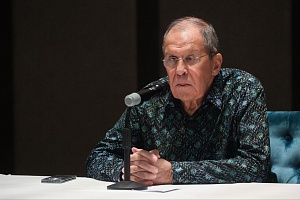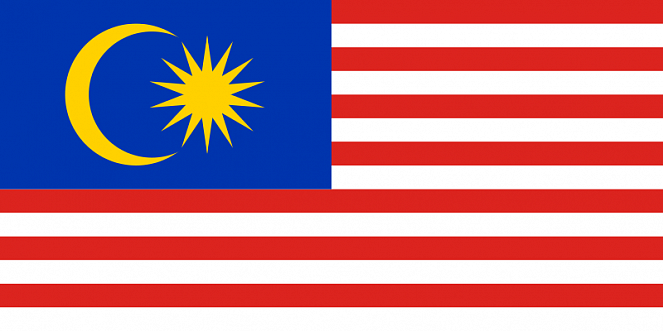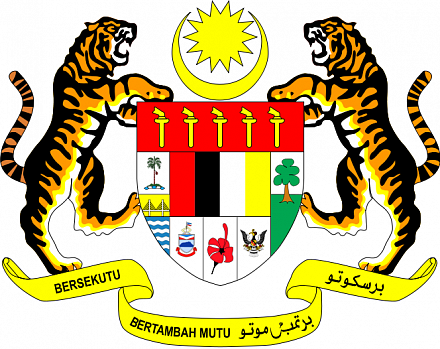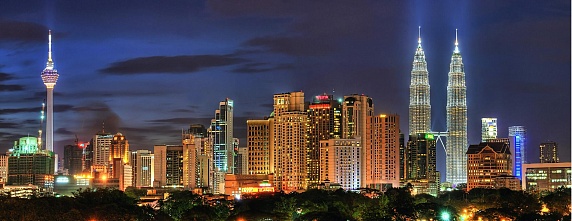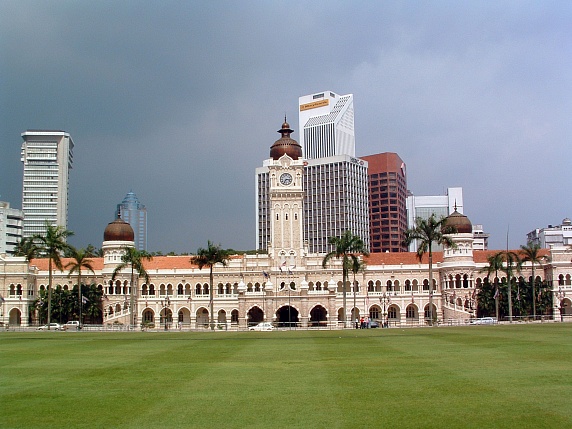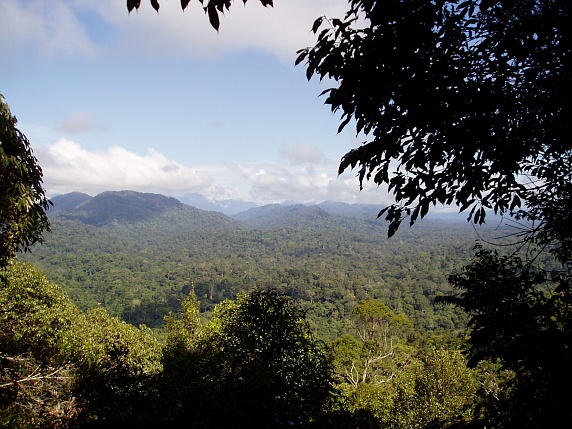 Малайзия
Малайзия
Foreign Minister Sergey Lavrov’s remarks and answers to media questions following his visit to Malaysia, Kuala Lumpur, July 28, 2024
Good afternoon.
Today, we held substantive and constructive talks with Prime Minister of Malaysia Anwar Ibrahim and my colleague, Foreign Minister Mohamad Hasan.
We discussed all aspects of our bilateral cooperation. It is growing at a fast pace in many spheres, namely between the heads of various departments, including the Foreign Ministry, and parliaments, regional governments, political parties, Islamic organisations, business quarters, as well as analytical and educational centres. In short, we have wide-ranging relations.
We talked about focusing on increasing mutual trade, which has slumped a bit over the past few years. The Joint Russian-Malaysian Commission for Economic, Scientific, Technical and Cultural Cooperation will hold its third meeting in 2024. In May 2024, the meetings of working groups on education, science, technology and tourism were held in Moscow and Kazan. They are a useful instrument for quality preparations of the intergovernmental commission’s plenary meeting.
We continue strengthening our legal framework. In May 2024, we signed an updated agreement on the avoidance of double taxation, which will come into effect soon. This will boost our investment cooperation. Work is underway on several dozen intergovernmental and interagency enactments. We have agreed to step up these efforts.
Malaysia is interested in expanding cooperation in education. About 700 Malaysian students are studying at our universities, most of them at medical departments. Russian and Malaysian universities maintain direct ties. In 2023, they signed over 30 joint documents, in particular, to launch joint educational programmes and projects in the fields of academic mobility, exchanges and the teaching of the Russian and Malay languages.
Foreign Minister Mohamad Hasan and I exchanged notes of cooperation between the Diplomatic Academy of the Russian Foreign Ministry and the Institute of Diplomacy and Foreign Relations at the Foreign Ministry of Malaysia. Their interaction will focus on the exchange of experience in the training of foreign policy experts and mutual on-site training.
We also discussed cooperation on the international stage, primarily at the UN, as well as in ASEAN. On July 26-28, 2024, Mohamad Hasan and I attended the ASEAN events held in Laos. In addition to meetings between the partner countries and the 10 ASEAN member states, we also held ministerial meetings within the framework of the East Asia Summit and the ASEAN Regional Forum. The importance of this cooperation is growing for us, above all in the context of promoting the Eurasian collective security initiative, where ASEAN’s large role can increase.
In 2025, Kuala Lumpur will assume the rotating ASEAN chairmanship. We have agreed that before that we will hold special consultations on preparations for next year’ events.
We also exchanged views on regional matters. Just like all ASEAN countries and the Muslim world as a whole, our Malaysian friends are especially concerned about the Palestinian-Israeli conflict and operations in Gaza. We share the opinion that a ceasefire must be coordinated and painful humanitarian issues addressed as soon as possible. Following that, the sides should launch talks on the practical parameters of establishing a Palestinian state.
Malaysia expressed interest in strengthening ties with BRICS. We wholeheartedly welcome and will provide assistance to this as the group’s chair.
We talked about the situation in Ukraine and expressed gratitude to our Malaysian colleagues for their balanced and non-partisan stand based on understanding the root causes of that crisis created by the Western efforts to draw Ukraine into NATO and turn it into an “anti-Russia.”
I have invited my colleague to make a reply visit to Russia. I hope that we will be able to continue our communication soon. We have coordinated a plan of consultations between our deputy ministers and other senior officials on a broad range of international issues.
Question: The United States has been obsessively trying to create another training ground out of countries in the southeast. Is it relevant to say that cooperation between Russia and Asia can help the region maintain its sovereignty?
Sergey Lavrov: Of course. I think we had a chance to see it for ourselves yesterday and the day before in Laos during the East Asia Summit and the ASEAN Regional Forum.
Russia is seen as a balancing and stabilising factor in the context of countering the extremely sharp-elbowed actions by the countries outside the region, led by the United States, who push their military infrastructure, including strategic arms. These countries inject nuclear deterrence components into the militarisation of Southeast Asia and the Asia-Pacific Region, specifically, as part of the AUKUS project by the United States, Great Britain and Australia that will supply nuclear-powered submarines with technologies that must be under IAEA control. The United States and South Korea closed an agreement on joint nuclear deterrence. So, quite many risks emerge here.
I told our colleagues yesterday that in NATO, Americans have long handed out their nuclear weapons to their five partners. They call it “joint nuclear missions” under which non-nuclear powers can train their military in nuclear weapon deployment and transportation. If the same deplorable and risky experience spreads to Southeast Asia, nothing good can come out of it. There will be even more risks.
The Americans are making attempts to escalate the situation not only around the Korean Peninsula but also around the Taiwan Strait in the South China Sea. They are pushing the countries in the region to stop looking for political and diplomatic solutions with Beijing on the South China Sea. On the contrary, the Americans are setting these countries up for confrontation and ultimatums against China. That is no good.
Our balanced and clear stance always comes from the need to create platforms for negotiations and to agree on the basis of a balance of interests. This stance receives respect. Certainly, in contrast to the invasive and aggressive course of the United States and NATO for military development of the region, our stance is closer to our ASEAN friends.
Question: Did you discuss President Putin’s initiative on building a pan-Eurasian security system with your Malaysian colleagues?
Sergey Lavrov: Yes, we discussed it yesterday and the day before in Laos during the East Asia Summit and the ASEAN Regional Forum.
President Vladimir Putin described our course in his remarks at the meeting with senior officials of the Russian Foreign Ministry. In particular, the Eurasian continent is the most promising and rapidly developing continent in the world. Colossal natural resources are concentrated in this region, along with high technology and immense opportunities for developing transport and logistics infrastructure. It is important to use all these comparative advantages granted by God and history in order to use the available opportunities for the socioeconomic development of our countries and nations.
We see this process as open to all states and organisations in Eurasia without exception. These economic, social, transport and infrastructure aspects are among the key elements in contacts between the EAEU, the SCO and ASEAN. We invite other organisations in Eurasia to join this conversation – specifically, the Cooperation Council for the Arab States of the Gulf (GCC). This cooperation helps to form what President Putin called a Greater Eurasian Partnership.
Certainly, when, in addition to developing the economy and reaping benefits of these comparative advantages in the Asia-Pacific Region, somebody is trying to bring confrontational approaches to the eastern part of Eurasia, including militarisation of this region, as was mentioned earlier, it is important to discuss how security can be ensured to minimise risks.
With that in mind, we recalled the experience of the OSCE that proceeded from the concept of Euro-Atlantic Security. In the long run, the only point in promoting this model of the OSCE (and NATO) is to subjugate everything. The United States has already achieved this goal by building the entire West under its command. The North Atlantic Alliance is fully subservient to Washington. The OSCE has been essentially privatised as well.
Like most other countries, we are not happy with this model. We want a system of indivisible security founded on equality. No single country on the content must strengthen its security by undermining the security of others. The OSCE declared this principle at a certain point in the past. The West sabotaged it. Now there is no indivisible security in the Euro-Atlantic.
We need a new model. We realise that this cannot happen fast because preparations are necessary, such as organising forums, sharing opinions and views. But the process began. On October 26, 2023, the first conference on Eurasian security took place in Minsk, attended by post-Soviet countries and Asian countries. Hungarian Foreign Minister Péter Szijjártó was there. The second conference is scheduled for next October in Minsk. The number of participants is expanding. Together with our Belarusian allies we will consistently promote this matter as it is attracting much interest.
Question: Last night saw another escalation in the Middle East, namely a missile attack on a football ground in the Israeli-occupied Golan Heights in which mostly children and teenagers were killed and injured. Israel has accused Lebanon, while Lebanon has put the blame on Israel. What is the likelihood of an all-out war between Israel and Lebanon? What could be done to prevent further bloodshed?
Sergey Lavrov: So far, we do not see any possibility of stopping the bloodshed. In response to numerous calls for a ceasefire, Israeli Prime Minister Benjamin Netanyahu has stated that Israel will not stop until it destroys Hamas completely. I believe, and many of my colleagues share this view, that the destruction of that organisation, which has significant capabilities and enjoys broad support, including in the Muslim world, is an unrealistic task.
Russia condemns all terrorist attacks committed by any group. We condemned Hamas’s terrorist attack on Israeli civilians on October 7, 2023. But Israel’s retaliatory actions have been unacceptable. They are a flagrant violation of international humanitarian law and amount to collective punishment of people, which international conventions prohibit.
I see that some countries are trying to formulate new compromise solutions, which provide for the gradual termination of violence in light of Israel’s rejection of an immediate ceasefire. Arab countries, namely Egypt and Qatar, are working on this, holding meetings with the Americans and Israelis. However, the Palestinians have not been included in these efforts, which are ultimately aimed at determining their future. We will continue working to help restore Palestinian unity.
In late February and early March 2024, Moscow hosted a fruitful meeting of all Palestinian factions. China has recently organised a meeting of representatives of all Palestinian movements, resulting in the signing of a declaration. But the process is not over yet.
I am sure that the main condition for a lasting solution to the Middle East crisis is the fulfilment of the UN Security Council resolution on the establishment of a Palestinian state as soon as possible. This cannot be achieved without restoring Palestinian unity so that the Palestinians themselves can determine the format of negotiations regarding their life in a sovereign state. This goal has not yet been achieved. Efforts must continue towards this end.
The bloodshed is a tragedy for the Palestinian people. Forty thousand people have lost their lives over the past 10 months, mostly women and children. Special Representative of the Russian Foreign Minister on the Middle East Peace Process Vladimir Safronkov recently travelled to Israel, where he and the Russian Ambassador met with their Israeli colleagues to share our perspectives. We will continue our efforts to stop the bloodshed. They have not succeeded so far.
Question: You usually wear Asian national shirts at ASEAN events, as you did in Laos recently. But we are in Malaysia now. Please, tell us about the shirt you are wearing today.
Sergey Lavrov: Yes, we are in Malaysia. Our hosts have decided to add a national touch. When I said goodbye to my Malaysian colleague in Vientiane yesterday, he asked if it would be comfortable for me to wear a national shirt during our talks in Malaysia. I said it would be fine with me. We are courteous people. And this is a nice gesture.
